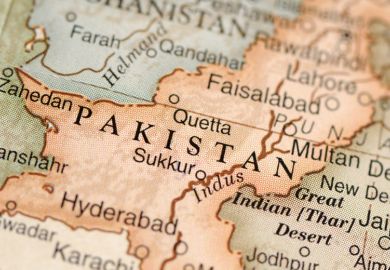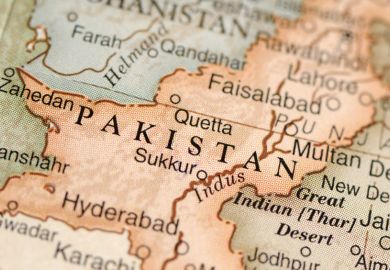Pakistan’s universities are controlled by corrupt professors who churn out junk papers in return for promotion and financial reward, a leading academic claims.
In a blistering attack on “academic crime” in Pakistan, Pervez Hoodbhoy says the decision to tie research funding to productivity in 2002 has created a system in which departments routinely submit useless papers to gain government funding.
Professor Hoodbhoy, a nuclear physicist who has taught at Islamabad’s Quaid-i-azam University and held visiting professorships at the Massachusetts Institute of Technology, compares Pakistan’s university system to an organised crime syndicate, in which fraud has been made “highly lucrative” by the government’s education reforms, which see cash paid to academics according to the number of PhDs awarded and research papers produced.
Writing in the Dawn newspaper on 2 July, Professor Hoodbhoy says that, when academics became “aware of a huge pot of money out there, the old system and its ethics disappeared".
“No one raises an eyebrow today when a student at the same university publishes 10-15 papers or more during the course of his PhD studies,” he says.
Universities have set up research paper “factories” producing “outputs…that resemble actual research so disguised that you don’t get caught”, says Professor Hoodbhoy.
“Like drug gangs in Chicago, a medley of Cosa Nostra style families now controls much of Pakistani academia,” he adds, explaining that “each mafia family boss is at least an associate professor, if not full professor".
“He has a defined territory, avoids fighting other bosses, and plays the patronage game expertly. Sometimes he has an underboss (chota) who supervises the factory labour, meaning PhD and MPhil students,” the article says.
The corrupt system is “privately acknowledged by those connected to university education in Pakistan", explains Professor Hoodbhoy, who claims that the country’s funding body is “paralysed by fear of the powerful Mafiosi that includes many university vice-chancellors, deans, department heads, senior and junior professors, PhD students, members of HEC [Higher Education Commission], academies of science, learned bodies, and winners of national awards".
“The impact on genuine academics – the ones who maintain professional standards and refuse to lie or cheat – has been devastating," he says. "In particular, many young ones lose heart when incompetent colleagues race ahead in promotions, receive wads of cash for publishing junk papers, rise to top administrative positions, and are nominated for national awards and prizes."
Professor Hoodbhoy calls for Pakistan’s universities to be “reoriented towards teaching and moved away from so-called research”, saying that the “crime syndicate cannot be dismantled by rewarding teaching competence instead of paper productivity".
"Incentivising paper and PhD production has resulted in mega-corruption," he says, adding that this "policy must be reversed even though the professor mafia will bitterly oppose it".
Register to continue
Why register?
- Registration is free and only takes a moment
- Once registered, you can read 3 articles a month
- Sign up for our newsletter
Subscribe
Or subscribe for unlimited access to:
- Unlimited access to news, views, insights & reviews
- Digital editions
- Digital access to THE’s university and college rankings analysis
Already registered or a current subscriber?








